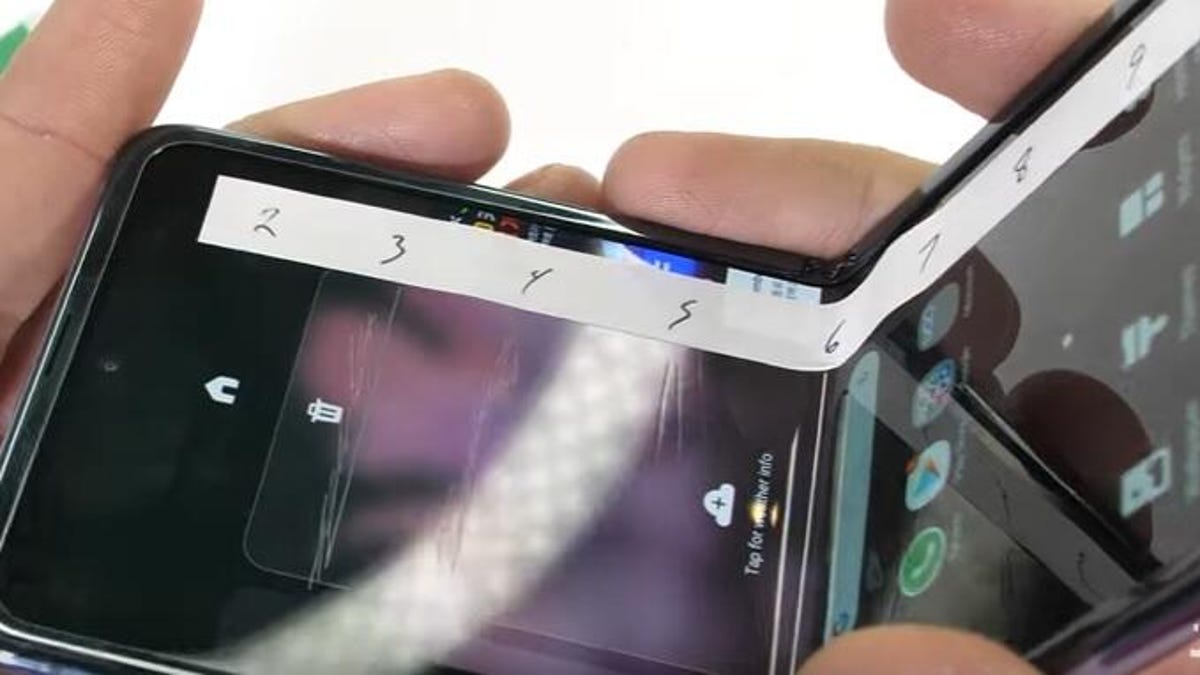Samsung Galaxy Z Flip screen stumbles in durability tests
Results lead one noted tinkerer to suggest the phone's screen isn't real glass.

The Samsung Galaxy Z Flip phone shows scratches in a portion of a durability test where glass would normally resist markings.
One of the standout features of Samsung's new Galaxy Z Flip phone is its foldable glass screen -- a world first. But recent tests call into question whether the screen is made of real glass and suggest you might want to take extra care with its bendable screen.
The device, Samsung's second foldable after its Galaxy Fold, features a clamshell design and is essentially a high-tech flip phone. Samsung says it's made with a proprietary glass it calls Ultra Thin Glass on its 6.7-inch bendable screen, giving it "a sleek, premium look and feel that has never been seen with a foldable device before."
The use of glass in the Flip is a first for the foldable market and is something that could give the device a boost. Glass doesn't scratch as easily as plastic and is generally more durable.
But tinkerer Zack Nelson, who runs the JerryRigEverything YouTube channel, put the handset through a battery of durability tests and came away disappointed by the results. He found that even his fingernail was capable of leaving scratches on the phone's screen at a point in the test where real glass would have typically resisted markings.
He points out that durability is the primary reason glass is used in phones, but his test results suggest the screen may not be real glass.
"This display clearly doesn't have the scratch resistance or structural benefits that customers are expecting from glass," Nelson says in the video.
"It could be that [Samsung is] using a hybrid plastic polymer with little specs of glass ingredients inside, and you know, just calling it glass," he says, adding that "we shouldn't be calling this screen glass when clearly my fingernail is leaving marks on the surface."
Samsung didn't immediately respond to requests for comment.

